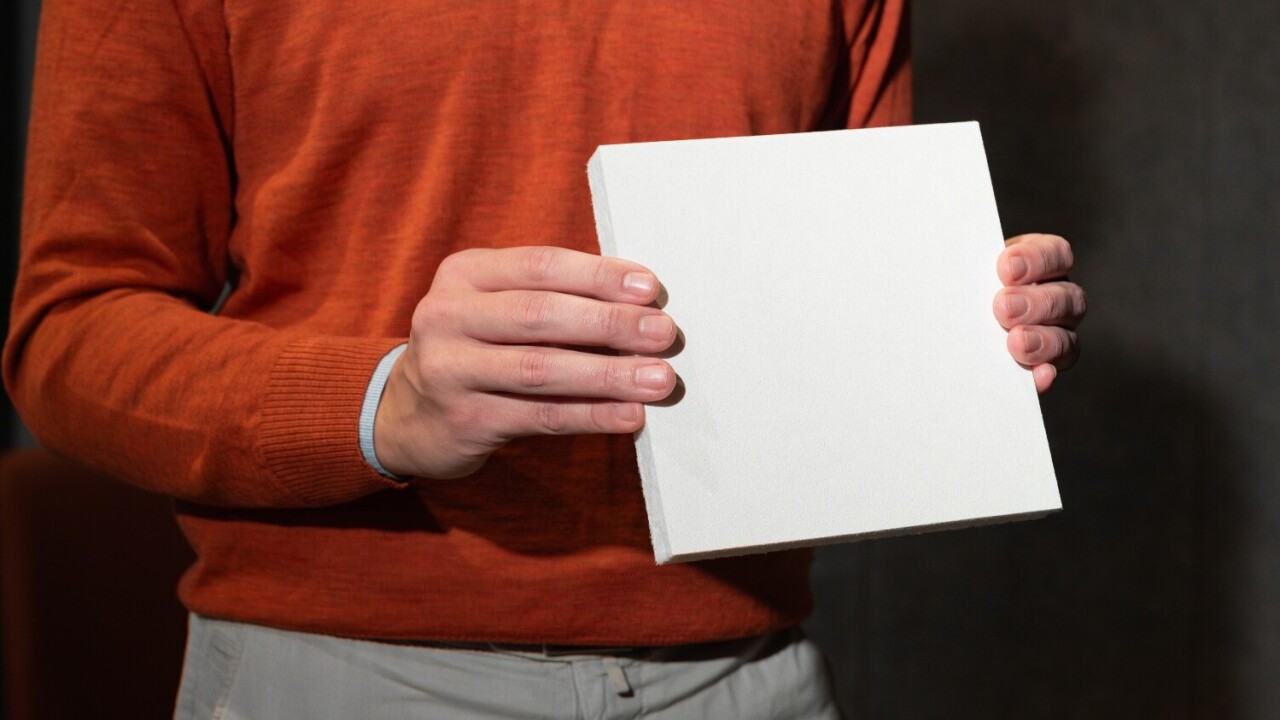
From bricklaying robots to zero-carbon cement, startups are shaking up construction in a high-tech bid to build better, greener structures.
One of these early-stage ventures is Finland-based Aisti. Founded in 2019, the company has come up with a way to make acoustic tiles that are “carbon-negative.” Acoustic panels are a common construction material used to reduce noise and improve sound quality in buildings.
Aisti has raised €29mn in a mix of VC and debt funding to build its first industrial-scale factory in Kitee, a small town about four hours northeast of Helsinki.
The startup plans to bring the tiles to market in the second half of 2026 and has already signed multiple offtake agreements with customers in the construction industry, it said.
Buildings alone are responsible for almost 40% of global emissions, so decarbonising construction is a critical piece of the sustainability puzzle.
Most acoustic tiles today are made from fibreglass, mineral wool or polyurethane, a type of plastic. Aisti’s panels, however, are made from wood fibres, which are sourced from sustainable timber or waste paper.
“Our production process is very resource-effective,” founder and CEO Mikko Paananen told TNW. “If every single acoustic tile in the world were manufactured with our technology, the need for wood fibres would be 700,000 tons annually which represents only the production of one medium-sized pulp mill.”
Aisti mixes the wood fibres with water and foaming chemicals similar to what is used in toothpaste. This forms a foam that is then moulded into squares and dried to make the finished tile.
“The wood fibres stick together with natural hydrogen bonds, so no additional binders are needed making the material very light,” explained Paananen, adding that the company will be able to make the panels at a similar pricepoint to conventional mineral wool tiles.
Aisti’s patented material can also be adapted for use as thermal insulation, packaging materials, and composites.
“We aim to first serve the Nordic market, meeting the growing demand for more natural building solutions in the region,” said Paananen. “We’re thrilled to have strong support from investors and other partners as we embark on this next growth phase and bring our product to market.”
Technology for the built environment is set to attract $24bn in VC investment in 2024 as the sector outperforms key tech verticals like climate tech and fintech, according to the State of Built World Tech report released this week.
Aisti’s funding round attracted notable early-stage investors including Voima Ventures, Maki.vc, and Valve Ventures. Part of the funding includes non-equity financing, including a €5mn loan from Norion Bank, a €7mn public grant from the South Savo ELY Centre and a €8.5mn capital loan from the Finnish Climate Fund.
“We are proud to support Aisti in its mission to revolutionize acoustic solutions with sustainable, high-performance materials,” said Pirkka Palomäki, partner at Maki.vc, a Helsinki-based deep tech fund. “This funding milestone marks not only the start of an exciting growth phase but also a transformative step for the construction industry as a whole.”
Get the TNW newsletter
Get the most important tech news in your inbox each week.




